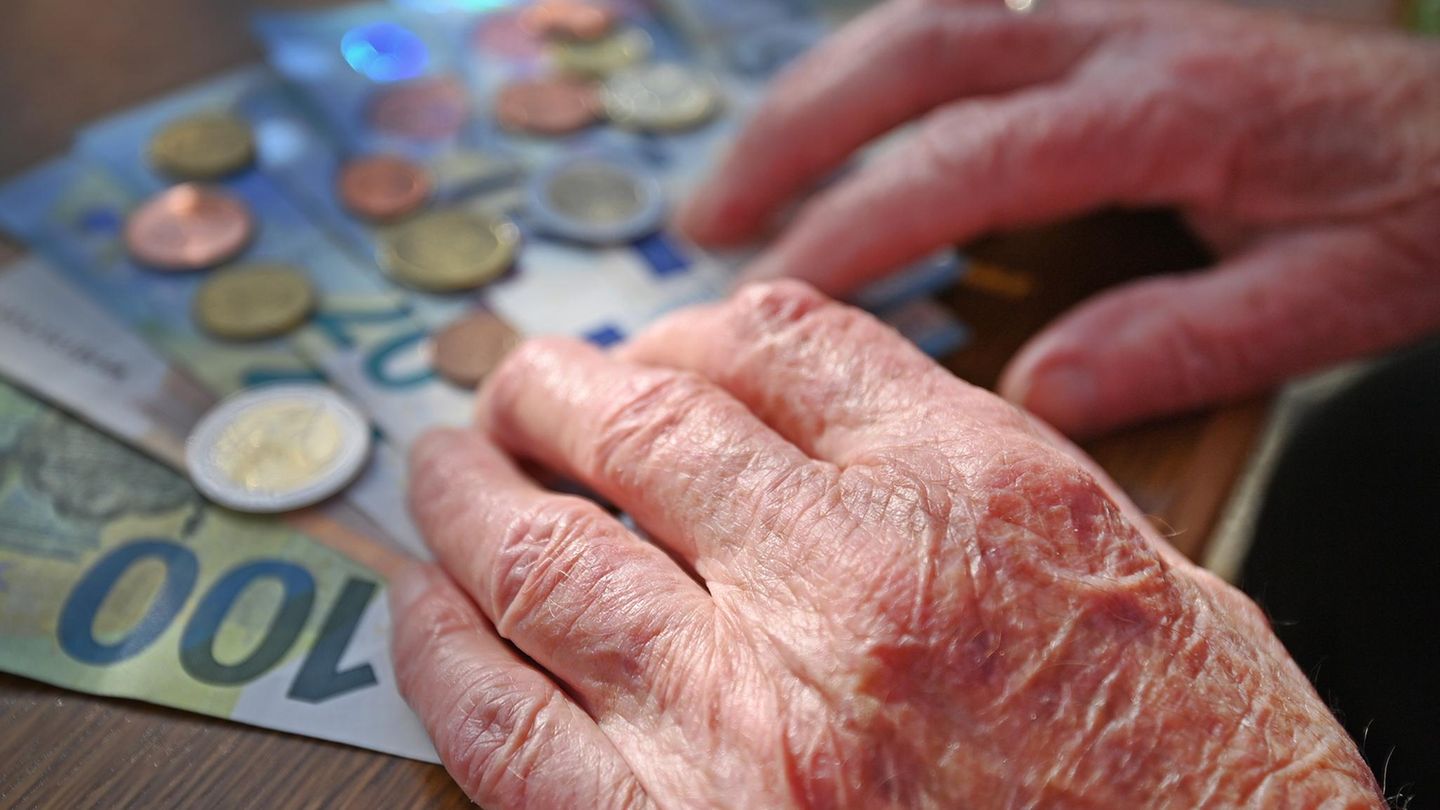Old -age insurance
Every fourth German receives less than 1,300 euros
Copy the current link
Add to the memorial list
Despite 45 years of insurance, many people in Germany receive a small pension. Left-wing MP Dietmar Bartsch calls it “a certificate of poverty for politics”.
More than every fourth with at least 45 years in pension insurance receives less than 1,300 euros a month in Germany. On average, the more than 5.5 million pensioners receive a pension with at least 45 years of insurance with at least 45 years of insurance. This emerges from the response from the Federal Ministry of Labor to a question from the left-wing MP Dietmar Bartsch, which is available to the German Press Agency.
There are clear regional differences and an east-west gradient. In the west, the average pension is 1,729 after 45 years, in the east at 1,527 euros. It is the most with 1,787 euros in Hamburg, the bottom is Thuringia with 1,491 euros.
On average, men get more pension than women
Men with at least 45 years of insurance receive EUR 1,778 in the nationwide average. For women, the pension paid out is an average of 1,449 euros.
Bartsch said the dpa: “If every fourth pensioner has to make a pension with less than 1,300 euros after 45 years, this is a certificate of poverty for politics, an obviously wrong pension policy.” The average pension shows “how insufficiently the statutory pension ensures the financial lifting in old age”.
From small pensions to high amounts
However, the government points out that the numbers did not fully represent the financial situation of those affected. The height of small pensions and high pension amounts are distributed.
According to the ministry, this is also due to the composition of the times requested: “Comparatively low pensions can also occur in 45 insurance years, since this includes not only contributions, but also free of contributions.” Among other things, times of school and university training or unemployment without unemployment benefit are listed. Part -time could also play a role.
In addition, the government points to the difference between pension and income as a whole: “However, a low pension from the statutory pension insurance says little about the standard of living in old age, since further income and household income are relevant as a whole.”
For example, women only have a small pension if they have stayed without their own earnings as a spouse for years – even if, for example, with the partner, they have an adequate common household income.
Bartsch: “‘Stabilization’ of the pension level is actually not good news”
Bartsch confirmed left-wing claims for a U-turn in pension policy. While the pension level in other European countries is over 80 percent, pensioners in Germany would have to make do with mini -dents in Germany, said the politician. “The ‘stabilization’ of the pension level promised by the federal government is actually not good news, but against the background of reality, a threat that everything should remain as it is.” Bartsch demanded that all workers should deposit to the pension fund, not just employed.
Federal Minister Bärbel Bas (SPD) had submitted the draft for her first pension law at the end of June. The pension level should remain stabilized at 48 percent. The pensioners can therefore hope for rising pensions despite the aging of society.
The pension level indicates the ratio of pensions to wages – if this is stable, the pensions do not lag behind the wages. While employers criticize the associated billions of bills, the unions are calling for a significantly higher level of pension.
Dpa
jha
Source: Stern




